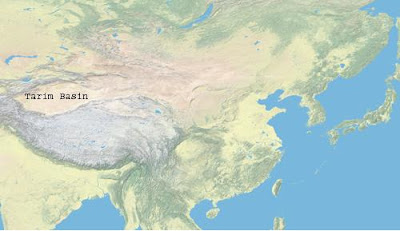The Literary Value of Sin Ch'ae-ho's Dream Sky: A Marginal Alteration of Dante's Comedy
This talk was a bit different - it was about
the translating of an Italian classic, Dante Alighieri's Divina
Commedia, into Korean. Professor Sangjin Park gave an
enlightening overview of the history of Alighieri's work in East Asia. He
showed how the Divina Commedia was first translated into Japanese, and subsequently came to
Korea in Japanese since Korea was a colony. Yet it was not really received in
Korea until later when another author, Sin Ch'ae-ho (also Romanized as Shin
Chae-ho) wrote Dream Sky. Sin is
known not only by most South Koreans, but also North Koreans as well as being
one of the most important contemporary historians for Korea. Born in 1880, his
books are still read in schools today.
Professor
Park remarked how Alighieri's language was easier to work with, since
translators struggle less to preserve more of the meaning than when translating
other works, such as those by William Shakespeare. He remarked how it was not Alighieri's
work itself, but poets like TS Eliot who assured Alighieri's work a place in
the modern literary canon. If Alighieri wanted his work to be famous, he would
have written it in Latin, but instead he wrote it in the Italian vernacular. He
helped distinguish an Italian language from Latin, and helped to establish an
Italian identity. It is reasonable to argue that Alighieri's work played a key
role in Italian nationalism.
The
writing of Dream Sky by Sin Ch'ae-ho
was sort of the same. It was written not in Chinese or Japanese, but in Korean.
It was part of a nationalizing process that gave Korea a separate identity. If
Sin Ch'ae-ho wanted his translation to be famous, he would have written it in
Chinese. But he chose to write it in Korean, and in doing so, made way for the
beginnings of modern Korean literature. Yet Sin Ch'ae-ho adapted Alighieri's Divina
Commedia for a Korean audience. Professor Park has
provided studies of Sin Ch'ae-ho's work and a full translation of the Divina
Commedia to build upon the foundations of Korean
literature laid by Sin Ch'ae-ho.
Sangjin
Park is a professor of Italian and Comparative Literature at Busan National
University of Foreign Studies in Korea. He is the author of Semiotics and Theory of Openness (Pusan: 2002, in English) and Reading
Dante’s Comedy: Universality of Classic and Sensibility of the Other (Seoul:
2011, in Korean) and recently translated Dante Alighieri’s Divina
Commedia (2007) and Giovanni Boccaccio’s Decameron (2012)
in Korean. The event was hosted by the Center for East
Asian Studies as the final lecture in the James Joo-Jin Kim Program in Korean
Studies Colloquium Series. For more information about the Center for East Asian
Studies and upcoming events, see
their calendar.
F. Miller SAS '13


Comments
Post a Comment
We follow the House Rules as outlined by the BBC here.